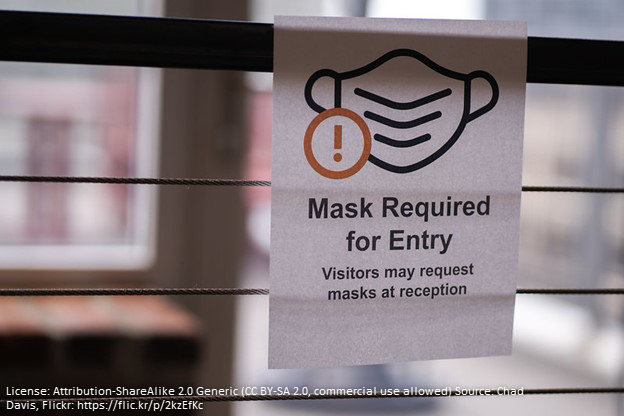How Employers Can Reduce “Re-Entry Anxiety” and Conform with B.C.’s Step 3 Restart Plan
Today, Rachel Rabinovitch, a human resources consultant in Vancouver, discusses how to reduce risk during BC’s Restart Plan. In a previous blog post, Rachel discusses potential changes to B.C. employment standards for articling students.
On July 1st, 2021, British Columbia will formally enter Step 3 of the provincial “COVID-19 restart plan.” The B.C. government’s Restart plan outlines the four steps to reduce restrictions in public spaces and workplaces. Step 3, beginning on July 1st, will begin a transition period in how COVID-19 is managed in workplaces.
According to WorkSafeBC, beginning with Step 3, employers will no longer be required to maintain a COVID-19 Safety Plan. Instead, employers will transition to communicable disease prevention.
In practical terms, according to WorkSafeBC, for employers, communicable disease prevention means:
- Ensuring there is adequate ventilation
- Maintaining a clean work environment through routine cleaning processes
- Implementing policies to support staff who may be sick with a communicable disease (such as COVID-19) to reduce the risk of COVID-19 transmission
A full summary of WorkSafeBC’s Step 3 guidelines is available online.
What Employers Need to Know About “Re-Entry Anxiety”
However, beyond following Step 3 requirements, employers should also recognize that employees may be apprehensive about returning to in-person work in an office or physical workspace. This feeling of apprehension may exist whether employees are transitioning from full-time remote work or from part-time remote, and back to part-time in an office or other physical setting.
Such “COVID re-entry anxiety” has been identified as a real condition among employees that employers should take into consideration. This anxiety is marked by “a feeling of unease, nervousness, or worry about participating in social activities that have paused over the past year and a half.”
Employees have spent over a year attempting to isolate themselves to keep safe. So, it’s important to recognize that switching back to working in congregate settings may take some adjustment.
In addition to the stress of participating in social activities again, other examples of re-entry anxiety include:
- Feeling stress about spending time commuting every day
- Worrying who will now drop off or pick up their kids from school
- Managing other family obligations or demands
Re-entry anxiety is not just about adjusting to working in close contact with others again. It’s also about a perceived loss of flexibility during the working day that was one of the inadvertent perks picked up throughout the pandemic.
Re-entry anxiety will be a common theme in the coming months as workplaces re-open and employees are re-entering “normal” life. Employers should be aware of the real threat that this poses to the smooth operation of their businesses, before enforcing an immediate return to work. An empathetic approach will go a long way in reducing risk to your business.
Along with empathy, offering hybrid work models and being flexible with work arrangements where possible, will greatly reduce stress for employees. As much as employers may want the office to be full and vibrant again, creating strict “employees must return to the office” rule may backfire.
Employees Should Feel Confidence About Your Health and Safety Plan
Besides embracing flexibility and giving employees a chance to adjust, employers should also ensure employees feel confident about your health and safety plan as it pertains to Step 3 of BC’s Restart Plan.
Some ways to bolster employee confidence include:
- Have a policy in place around vaccinations, personal protective equipment and vaccination records, state how this information will be used and stored
- Educate yourself on the risks and responsibilities of asking for any vaccination information from employees
Finally, instead of removing all evidence of COVID-19, it is advised to keep as many of the COVID-19 protocols in place as possible, that don’t impact your business–make hand sanitizer available in an office settings, continue to enforce room occupancy limits and social distancing, and so on.
Need Help? Contact the Team at Spraggs Law
Spraggs Law can help with writing policies, creating hybrid work models, or managing employee expectations and difficult conversations with Human Resources Consulting and Employment Law Expertise.
Do you need help with a legal issue? Spraggs Law can help. Give us a call at 604-359-1627 or contact us online for a free consultation to discuss how we can offer personalized assistance based on your circumstances.
Please note: This article does not contain legal advice. If you would like advice on your specific situation, please contact Spraggs Law.
